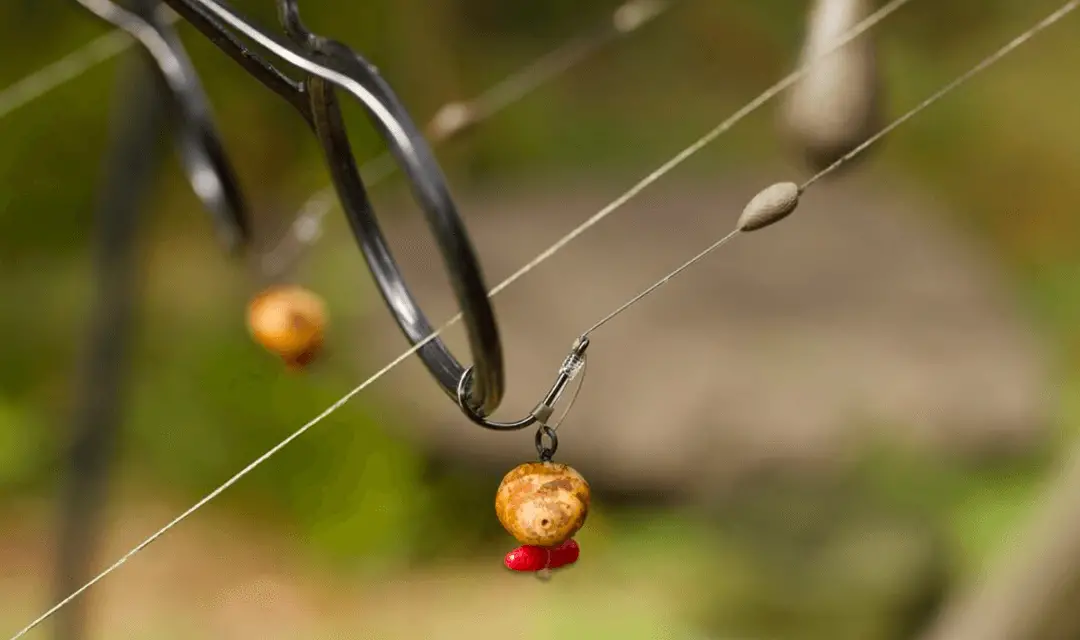


Looking for the best carp rigs to help you bank a few carp? In this guide I’ll walk you through the most popular carp rigs available, how to tie them and why you should use each one.
For new and seasoned anglers alike, tying carp rigs can be incredibly confusing with the shear number of options available. Knowing your ronnie rigs from your stiff hinges can be mind boggling to say the least.
I’ve been carp fishing for over 15 years and in that time thousands of rigs have been documented in the media.
Therefore, in this guide I wanted to bring some clarity to the subject.
We will be going in-depth on the 12 main carp rigs being used right now and why you should use them. But more importantly, we’ll be telling you why you shouldn’t use them in certain fishing scenarios.
Hopefully we can help you choose the right rigs to use on each session and bank you a few extra carp!
Table of Contents
There is no silver bullet when it comes to carp rigs. No wonder rig which is going to catch you thousands more carp than everybody else on the lake!
In reality, carp are pretty simple creatures to catch (which is why they can be caught on simple free-lined rig tactics!). More importance should be placed on location, ensuring that whatever rig you cast is well positioned to be picked up by a feeding carp.
You can have the most sophisticated carp rig in the world, but if it’s not in the vicinity of feeding fish, it’s never going to work.
Carp rigs are all about personal choice; finding what works for you over a period of time and having confidence in what you’re using. – That should always be the aim in my opinion!
A common question we are asked is what do I need for a carp rig? If you want to tie fishing rigs for carp yourself, there are a few fundamental items that you’ll need. These things are just the absolute minimum, but I’m sure you’ll find yourself adding to this as you continue to tie different carp fishing rigs.
Keep your pre-tied rigs neat and tidy with the Korda Rigsafe.
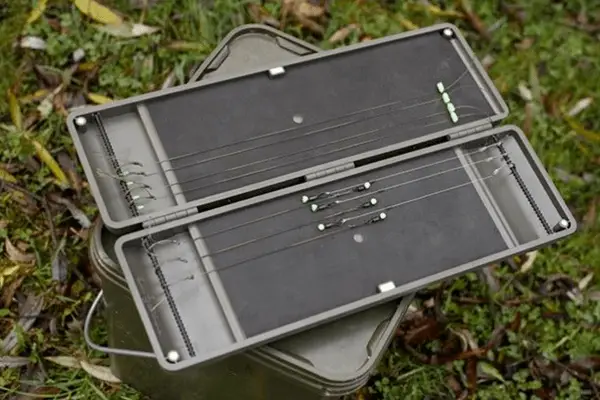
A must have tool to enable you to neatly cut through tough braided hooklink materials.
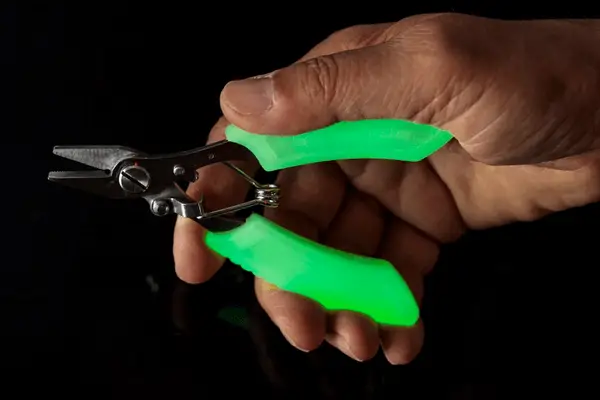
Vital for securiting your baits to some of the rigs covered in this guide, including the chod rig and ronnie rig.
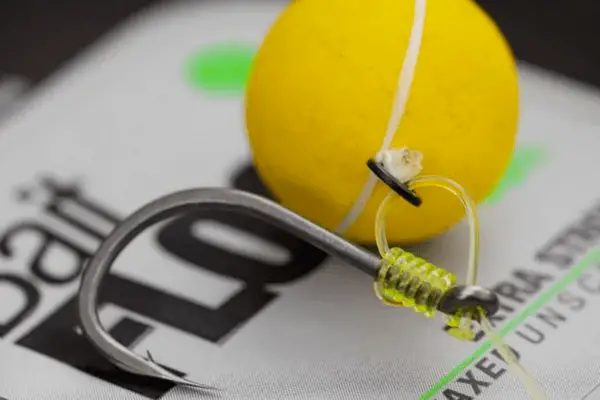
Makes it easy for you to tighten up the knots on your hooklink material.
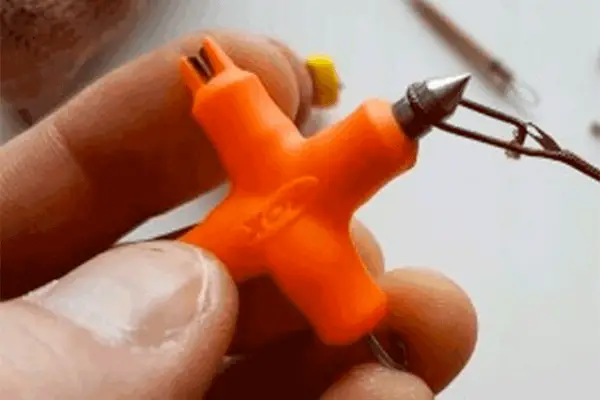
Used for stripping the outer coating off braided hooklink materials.
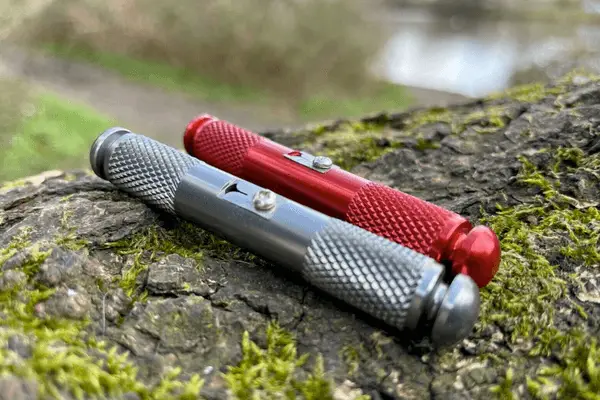
Here are a few things to think about to when it comes to choosing the best carp rig for your angling situation.
The most important aspect of any carp rig is to ensure that it can accurately present your bait over whatever lakebed you’re fishing on. If you are fishing over gravel for example, you can get away fine with a standard hair rig/bottom bait presentation.
However, things get a bit trickier if the lakebed is covered in silt or leaf-litter. In this instance, you may want to opt for a pop up presentation that sits a few inches of the lakebed.
Your hooklink should always be able to come free of the lead in the event of a crack off or cut off. Fish safety is paramount and a carp should never be attached to a lead if you happen to leave terminal tackle in the lake by accident.
It goes without saying, you need to make sure that you have a sharp hook. A sharp hook can drastically improve the mechanics of any carp rig, catching hold in the carps mouth quickly and improving hook holds.
On the flip side, a hook that’s damaged or blunt can decrease your chances of a pickup and result in hook pulls at the net.
With that in mind, you might want to consider sharpening your hooks using a dedicated kit such as the JAG Hook Sharpeners. For some, that may be taking things too far, so you should at least double check the sharpness of the hooks that come straight out of the packet.
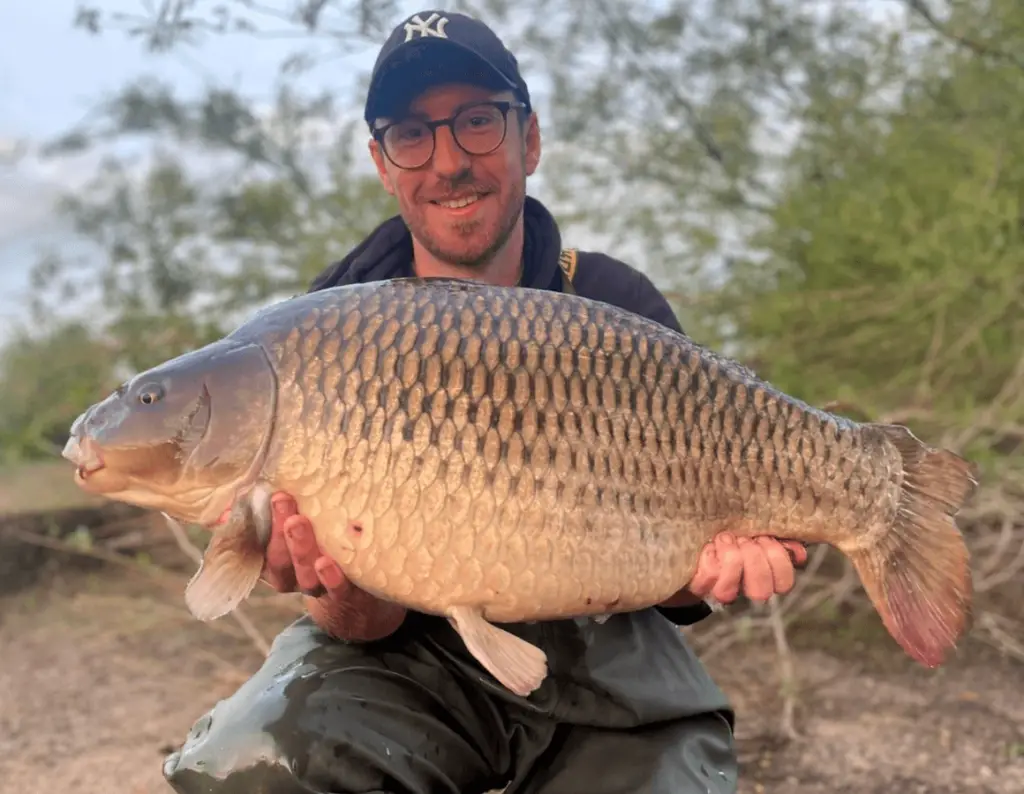
As you can see from the rig itself, the ‘hair’ section is a prominent feature. This is simply a length of braid or monofilament that runs off the back of the shank of the hook, with a small loop on the end.
Baits are then mounted on the hair using a baiting needle and held in place with a bait stop.
This is the king os basic carp rigs!
The hair rig is suitable for all manner of carp fishing situations. It truly is a versatile rig, and baits of all kind can be mounted on the hair, from bottom baits to wafters and pop ups. Simply adjust the length of the hair depending on the size of the bait you’re using.
For many, this is their go-to rig, no matter whether they’re fishing on silt, gravel or weed.
Whilst what we’re showing here is the hair rig in it’s simplest form, it’s not uncommon to see anglers make minor changes to their hair rigs to further improve the rig mechanics.
Some common additions to this rig include:
Follow the steps below to tie a simple hair rig for carp fishing. This how to guide was originally featured by CC Moore.
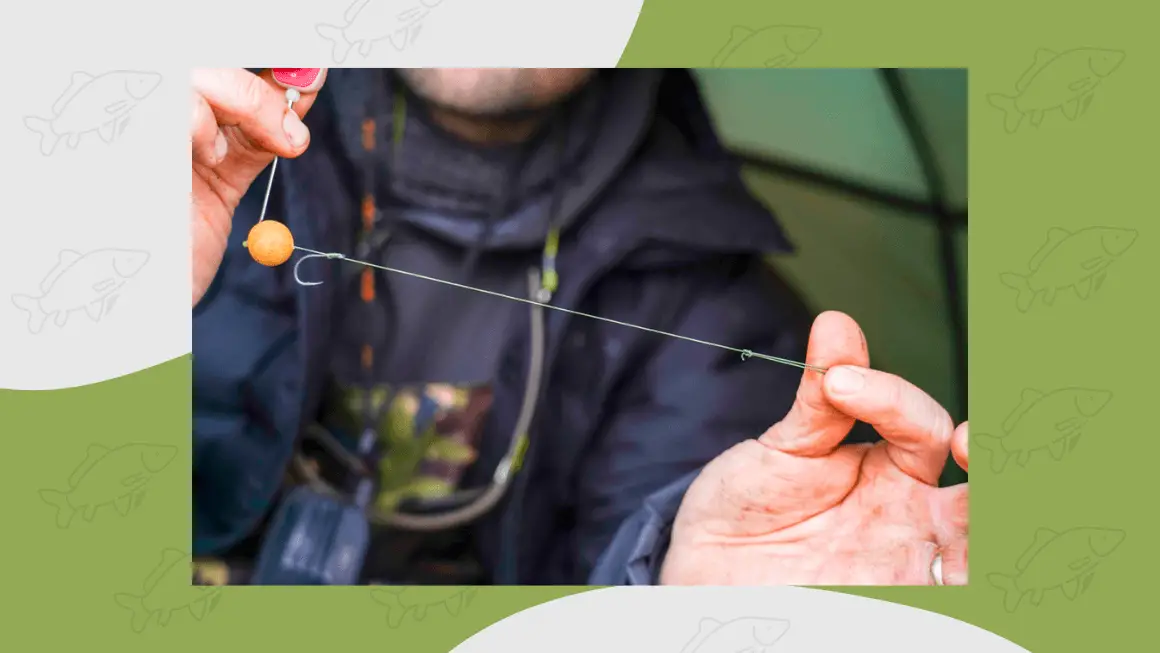
Take off 10-12 inches of hooklink material from the spool and strip back 3 inches of the coating.
Double over the stripped back part of the hooklink and form a small overhand loop. This will act as the loop for you to attach your bait using a baiting needle.
Take the tag of your hooklink and pass it through the back of the eye of the hook. Decide how long you want your hair based on the size of the bait that you will use.
Trap the hair against the shank of the hook and begin to whip the hook link back around the shank of the hook 8-10 times. Pass the tag end back through the eye of the hook.
The hook section of the hair rig is now complete. Now create a figure of eight loop knot at the end of your hooklink and determine how long you want your hooklink. Tighten everything down and you’re good to go!
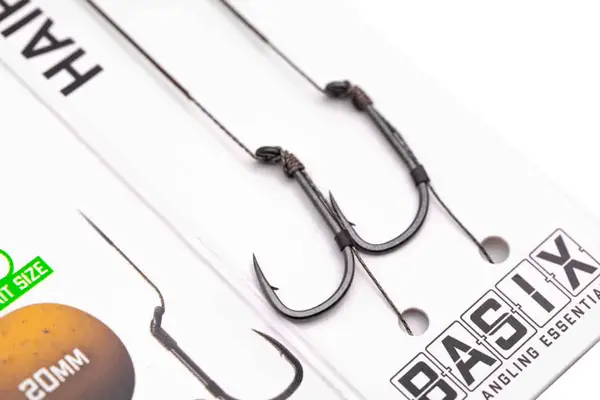
Typical Use
This rig is typically used for pop up presentations, and can be used on most lake beds.
Difficulty
Time to Make
If you’re an avid watcher of carp fishing videos, you’ll notice the popularity of the ronnie rig, otherwise known as the spinner rig.
The primary goal of the ronnie rig is to allow a pop up bait to sit proud of the bottom, with the ability to spin 360 degrees via the use of a spinner swivel. This leaves you with a deadly carp rig presentation, capable of;
For these very reasons, the spinner rig has grown in popularity and is the go-to rig for most anglers when fishing pop up presentations.
As far as pop up carp rigs are concerned, the ronnie rig is incredibly effective in almost all carp angling situations. It’s probably easier to mention where it is not so effective.
Personally, due to the low-lying nature of this pop up presentation, I wouldn’t tend to use it in areas covered in weed. The reason being that I would want something that stands a little bit higher off the lake bed, such as a stuff hinged rig or chod rig.
However, for the majority of angling situations when using pops, the ronnie rig does suffice. There’s not many more successful rigs out there to be honest!
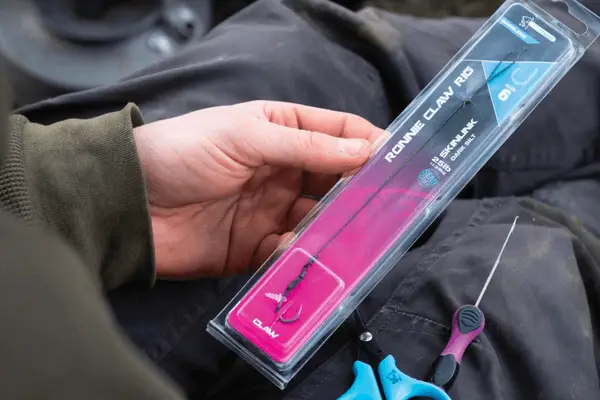
Typical Use
This rig is designed to be used for pop up boilies, suspending the bait a couple of inches over lake beds with light weed or debris.
Difficulty
Time to Make
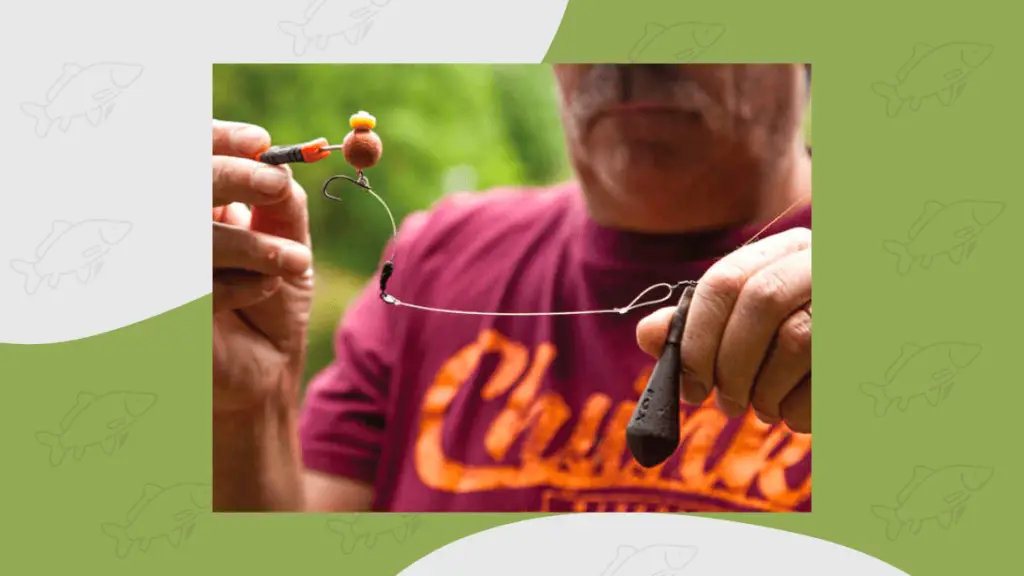
Known as a big carp rig, the stiff hinged rig is one of the most successful pop up carp rigs ever produced.
As the name suggests, this rig focusses primarily around a hinge which is created with the use of a micro swivel. It makes the hinged stiff rig incredibly hard for carp to eject, and is therefore excellent for old, wary big carp!
In many ways, it shares some of the same characteristics of the ronnie rig; bring hard to eject but also being able to reset itself.
Materials used on the stiff hinged rig include a chod hook, micro swivel and a stiff bristle-filament hooklink material. The bristle-filament material is vital to the mechanics of the rig, creating a curve in the hooklink that ensures hook holds in the centre of the bottom lip.
This is the go-to rig for many top carp anglers including Terry Hearn and Scott Lloyd.
The hinged stiff rig can be used for any scenario where you require a pop up presentation. That can be over gravel, silt or weed.
However, it has been proven to be most successful when fished over spreads of boilies. This is typically due to the height that the hinged stiff rig sits off the bottom of the lakebed.
If you can get carp feeding, ideally you would want them picking up single boilies at a time when using this rig, rather than hoovering up smaller particle baits.
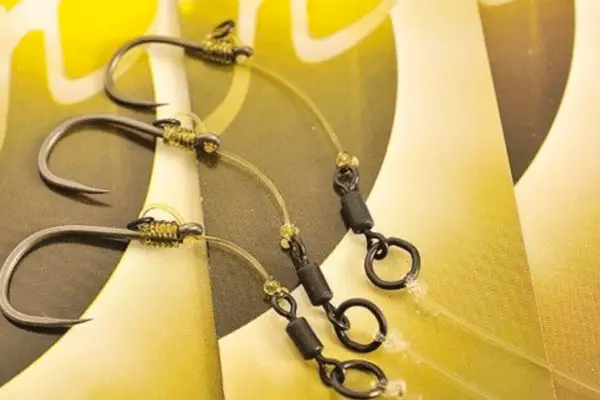
Typical Use
This carp rig is perfect for fishing in weed or over debris, allowing the bait to stay suspending above the weed and away from the lead.
Difficulty
Time to Make
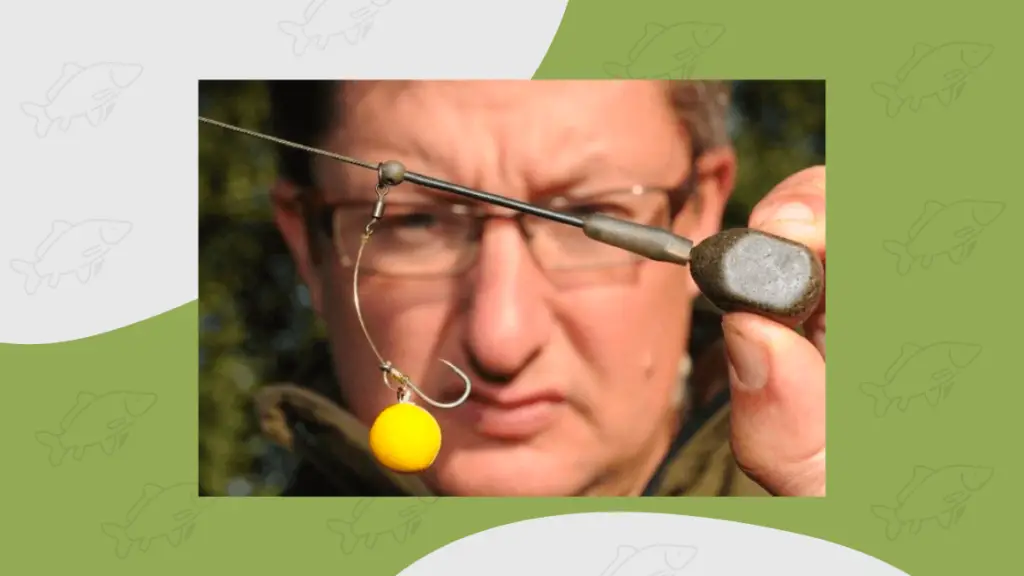
The chod rig was a revelation when it was first made by Frank Warwick and later adapted and taken mainstream by Terry Hearn.
It’s rig mechanics are like no other, with the ability for the hooklink to fly up your carp line and sit at a specific distance away from the lead.
What this does it solve an age-old problem of heavy leads burying your hooklink, which is typically the case with inline lead setups or lead clip set ups. By allowing the hook section to ‘fly’ up the line on the cast, your lead plunges into any silt or weed and your hookbait sits above it.

For that reason, it was named the ‘chod rig’ – The only rig specifically designed to be fishing over debris, leaf litter and just generally in areas where the bottom of the lakebed isn’t clear.
Constructed from a stiff-bristle filament material, the chod section is typically bent over to create a super agressive curve presentation that results in excellent hook holds.
The chod rig is best used when fishing on lakebeds that are not clear. That could be any weed depths, deep silt or areas where leaf litter has gathered.
For me personally, I tend to use the chod rig when casting to areas of the lake that I have not previously fished. For example that might be casting to a showing fish but not wanting to spook them by leading around in that area.
With the way the chod rig works, you can be pretty confident that it’s well presented in almost all manner of places that you cast it. For that reason, it’s been a mainstay in many anglers tackle boxes.
Watch the video below for how to tie a chod rig:
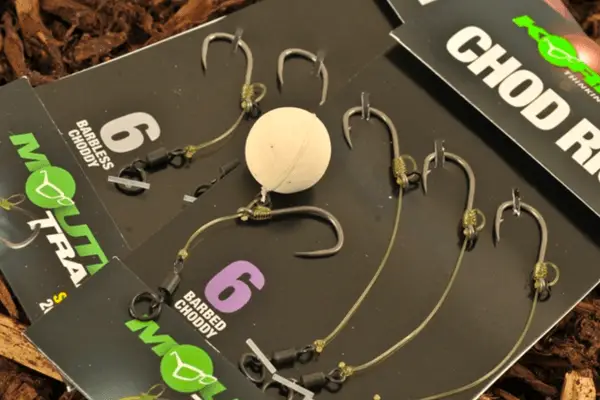
Typical Use
Like a standard chod rig, this is ideal for fishing over weed in clear water.
Difficulty
Time to Make
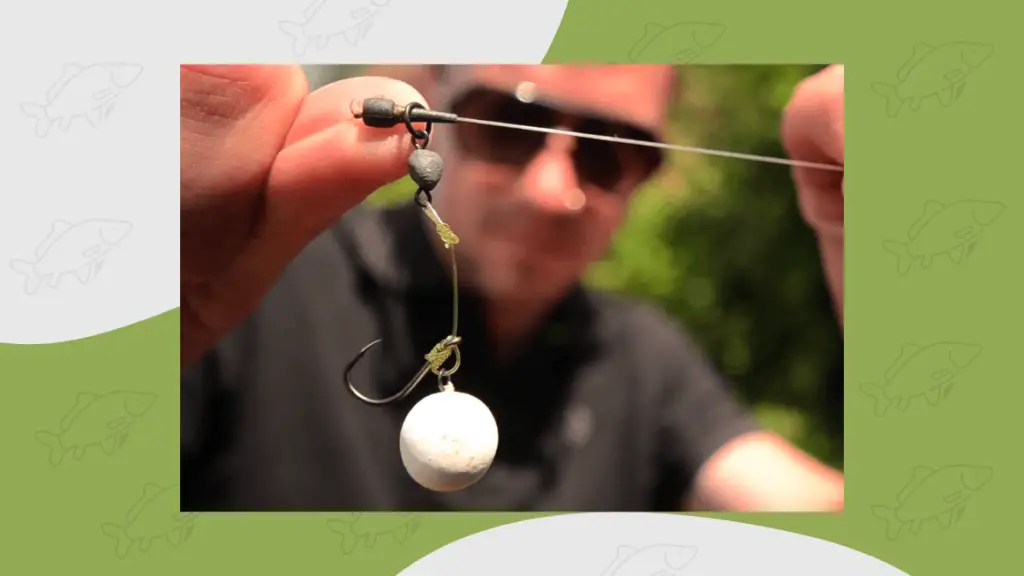
Like most carp rigs, they tend to evolve over time as anglers tweak and change things.
That’s how the naked chod was born from an evolution of the original chod rig that we outlined above.
The major difference with this rig is that the chod section slides up and down directly on your mainline, rather than a leadcore leader.
What this means is that you have a much more subtle setup, as leadcore can be quite blatant when fishing in clear water or up and over weed beds.
Luckily, things haven’t gone too far with the evolution of the chod rig. You still benefit from it’s ability to be ‘cast anywhere’. It still remains an incredibly effective rig for fishing in deep silt, weed or debris.
Personally, I’ve always been a fan of using it with leadcore, as it allows everything to be pinned to the lakebed.
Not only that, but using mainline straight through can have a tendency to lift the scales of carp during the fight. – It’s a downside of the naked chod which isn’t so much talked about these days.
The naked chod should be used in all of the same scenarios as the original chod rig. It lends itself perfectly to deep silt, weed or lakebeds full of leaf litter.
The obvious benefit of fishing it ‘naked style’ is that it is less obtrusive without the leadcore leader. With that in mind, you may opt to use this when the water begins to get clearer or if you expect the rig to be sitting directly in a heavy weed bed.
In the video below, Team Korda angler Darrell Peck talks us through his naked chod rig setup:

Typical Use
When fishing for tricky carp over lakebeds with silt or debris present.
Difficulty
Time to Make
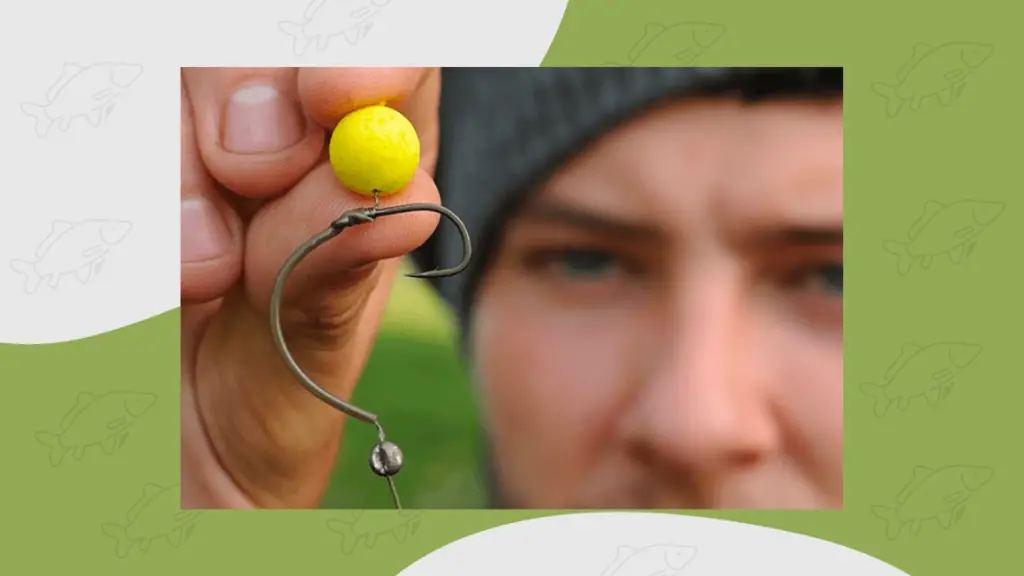
The Withy Pool rig is an iconic rig from the 90s, created by Steve Renyard in his quest to catch the tricky carp of Withy Pool.
With a sweeping curve, it’s a distinctive rig that’s designed to hook elusive carp as they feed.
Unlike bottom bait rigs where the hook it likely to be laying on the bottom, the Withy Pool Rig stands tall. This ensures that the hookpoint is almost always sat at an aggressive angle when used with a pop up bait.
Similar to a longer hinged stiff rig, it benefits from a curved section that results in excellent hook holds and anti-eject properties when a carp picks up the bait.
Over the years there have been some adaptations to this rig, mainly focussing on shortening or tightening the curve of the shrink tube. It’s all personal preference how aggressive you want to make the curve of the tubing, but the original rig features a rounded curve and a wide gape hook pattern.
The Withy Pool is an iconic rig which still has it’s place in some old school anglers tackle boxes! If you’re looking for a pop up rig that most carp are not likely to have seen before, give this one a go.
The Withy Pool rig is a versatile pop up rig that can be used in almost all fishing situations.
However, it was specifically designed to catch tricky carp that are masters at picking up and ejecting other rig presentations. If you’re fishing a water where you’ve experienced this, then you may opt to give the Withy a go.
Given the nature of the rig and how it sits up, it’s also ideal for use on silty lakebeds. Paired with a buoyant pop up, the rig stands tall of the silt/debris and gives you an excellent opportunity to hook a carp should it take the bait.
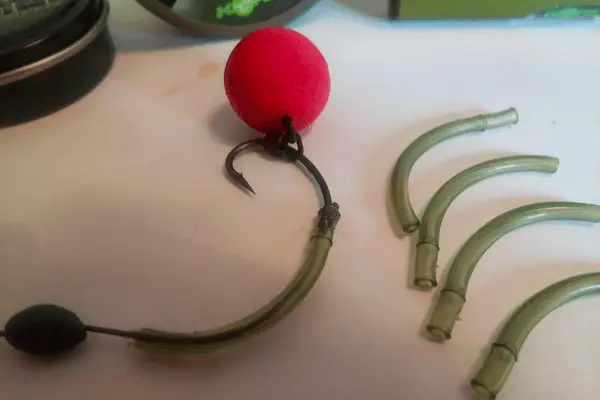
Typical Use
Use the multi rig as a bottom bait or pop up presentation. Perfect if you need to change your hook regularly without creating a full new hooklink.
Difficulty
Time to Make
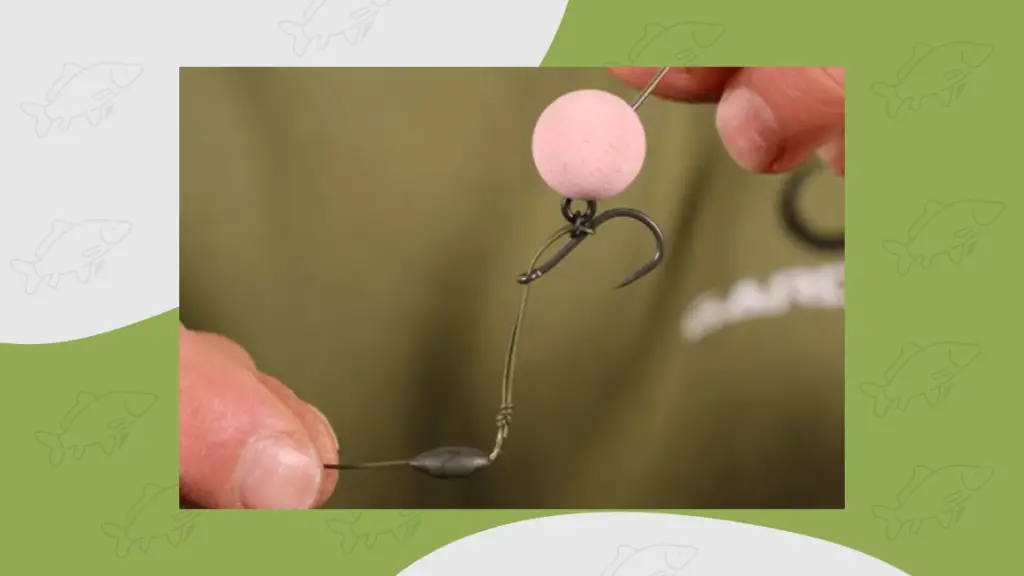
The multi rig is a relatively new rig in the world of carp fishing. It’s use has grown exponentially in recent years due to it’s versatility.
Like other big fish rigs like the chod or stiff hinge, it offers incredible hook holds when fished with pop up boilies, due to the aggressive curve in the hooklink material.
The key thing that separates this rig from others though, is the way that the hook is attached. Unlike other rigs which are knotted directly on the hook, this is attached via a loop knot, similar to how you would attach your mainline to a leader.
As a result, you can simply loop off the hook and change it to a fresh one without having to re-tie a whole new rig. This is a game-changer for those who sharpen their hooks or change them after every fish.
Not only that, but due to the lack of components used to construct this rig, it remains relatively well balanced. You can use it for smaller pop up baits, unlike the chod rig or stiff hinge where you need something super-buoyant to benefit from a good rig presentation.
Due to it’s versatility, you can use the multi rig in pretty much any angling situation.
Whilst most media publications showcase the multi rig for pop ups, it is also equally as effective for bottom baits and wafters.
For me, the biggest reason for the use of the multi rig would be if I was obsessed with hook sharpening. In this instance, it’s perfect as you can quickly change the hook if it comes back in blunt.
You don’t need to spend time tying up loads of new rigs and it’s better for the environment too, which is always a good thing!
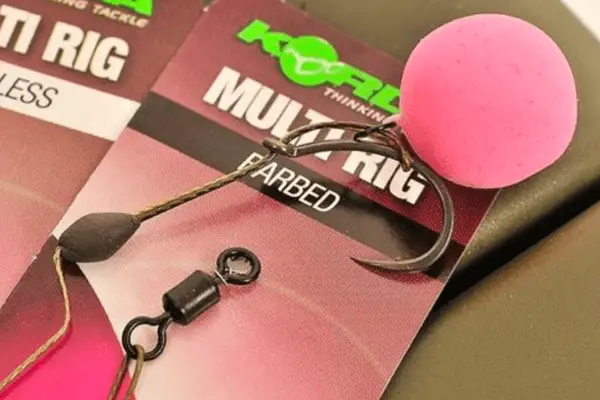
Typical Use
When you need a rig that offers excellent hookholds and anti-eject properties. Perfect for tricking wary carp!
Difficulty
Time to Make
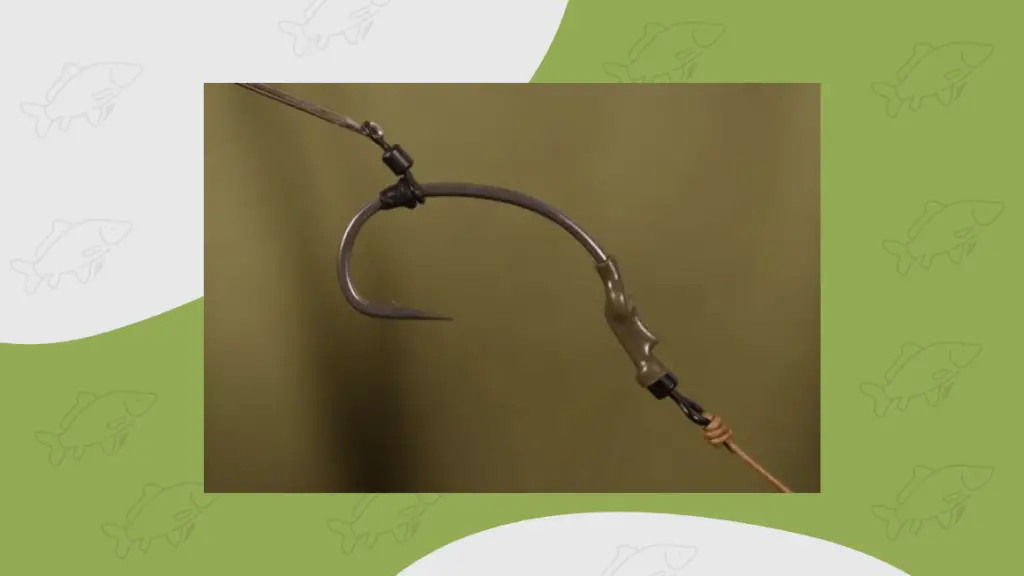
If you’re looking for a rig that suits all eventualities, and is incredibly quick to tie, then you can’t go wrong with the german rig.
The german rig is all about simplicity, and is probably more simple than the hair rig!
In fact, it’s very similar in construction, but the main difference being that the bait is mounted on the shank via a ring swivel, rather than a hair.
As a result, not only is this rig very quick to tie with one knot, it’s also incredibly versatile when it comes to bait choice.
By mounting the bait using floss and a rig ring, you no longer need to worry about creating different rigs with different hair lengths to accommodate the baits. You can get away with one rig to mount all manner of hookbaits, including bottom baits, wafters and pop ups.
When it comes to materials used, you can choose whichever hooks and hooklink materials that you like. Curved shank hooks and coated braids are popular choices with the German Rig, although you can get away with other hook patterns and stiffer materials like Korda Boom.
The german rig was born out of a desire for versatility. As such, it can be used in all manner of angling situations, whether than be bottom bait or pop up fishing over various lakebeds.
It’s also worth noting how popular this rig is for fishing at distance. Due to the lack of components used, it offers great anti-tangle properties when combined with a lead clip set up or helicopter set up.
Check out the video below from Mainline Baits for how to tie a simple but successful german rig.

Typical Use
Like the German Rig, this carp rig is perfect for tricking wary carp. It’s a common bottom bait or wafter rig for many carp anglers.
Difficulty
Time to Make
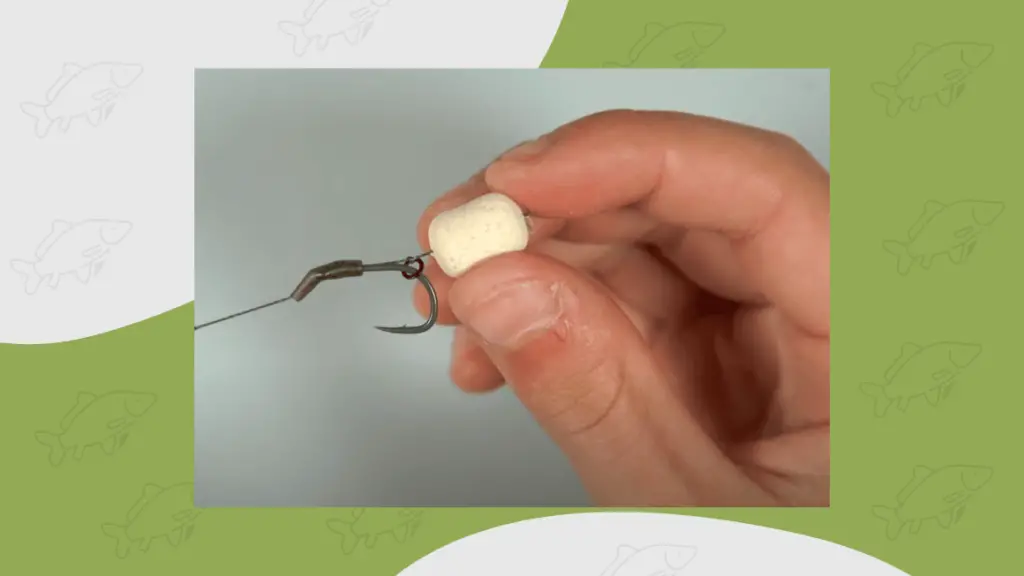
Similar to the german rig, the blowback rig is essentially an evolution of the original hair rig.
It’s very similar in it’s design, with the obvious addition of a rig ring that secures the hair to the back of the shank of the hook.
It’s known as the blowback for obvious reasons. When a fish picks up the bait and tries to eject it, the bait can move freely down the shank, leaving the hook able to penetrate the bottom lip. – At least that’s the idea anyway!
For years, this rig has been the mainstay for many anglers as their bottom bait or wafter rig. It works exceptionally well for wafters, with the rig ring further adding to the natural movement of the bait.
It offers versatility when it comes to materials used too. You can use this with standard wide gape hooks or opt for a longer curve shank like many do for their blowback setup.
If you’re looking to tweak your standard hair rigs slightly to fish for bigger, wary carp, then the blowback rig is definitely worth a go.
The blowback rig works pretty well in most angling situations where you would fish bottom baits or wafters. For me personally, this has been my go-to rig for any time that I’m not fishing pop ups or solid PVA bags.
My favourite hook pattern is the Gardner Mugga hooks and rig suits that perfectly, with a long sweeping shank for the blowback to move up and down.
It works particularly well for snowman presentations which I like to use too.
Whilst you can use the blowback rig for pop ups, there are definitely more suitable presentations such as the spinner rig or stiff hinged rig.
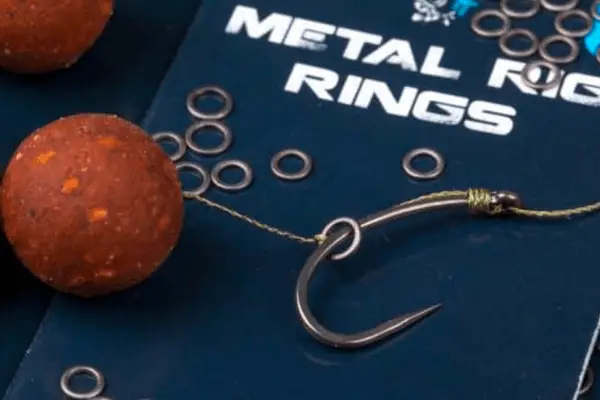
Typical Use
Perfect for use on bottom baits, wafters or pop ups alike. A true all-round rig that works in many situations.
Difficulty
Time to Make
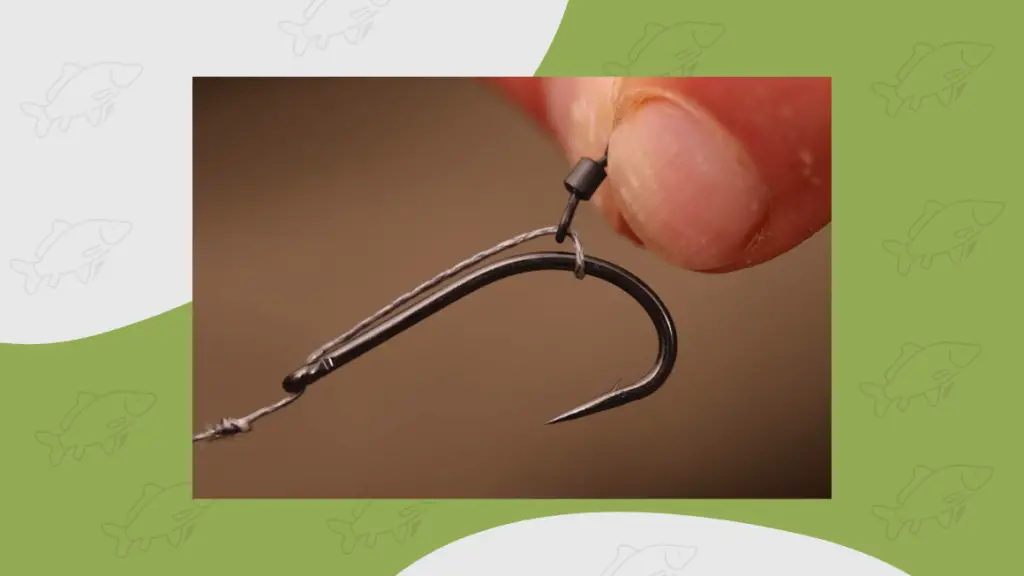
The slip D rig is one of the best carp rigs when it comes to anti-eject properties.
With the use of a rig ring and a supple ‘D’ section on the shank of the hook, this rig offers excellent bait movement therefore is incredibly hard for carp to eject.
It’s very similar to the blowback rig in terms of it’s mechanics, being great for use with bottom baits, wafters and pop ups alike. In fact, I know anglers who use the Slip D rig as their only rig, unless fishing with zigs of course. – Talk about versatility!
However, where this excels over the traditional blowback is how the bait is mounted.
By using a slide 22 ring swivel on the slip D, you can attach bait with floss and no longer need to worry about adjusting the length of your hair.
For this reason, the slip D has become my go to bottom bait and wafter rig in 2022 and beyond. I was tired of having to carry multiple bottom bait rigs with various hair lengths to adjust baits.
Whilst it may take a little bit longer to construct than other bottom bait carp rigs, it just makes the sessions much easier by being able to switch over different hookbaits quickly.
Again, this is another super-versatile rig that can be used for bottom baits, wafters or pop ups. It’s ideal if you want to keep your terminal tackle to a minimum, using just one rig for many different scenarios.
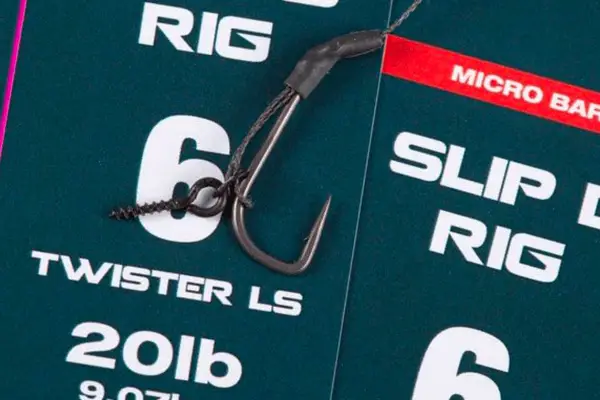
Typical Use
For fishing for carp in the upper layers, feeding in mid-water or cruising just under the surface.
Difficulty
Time to Make
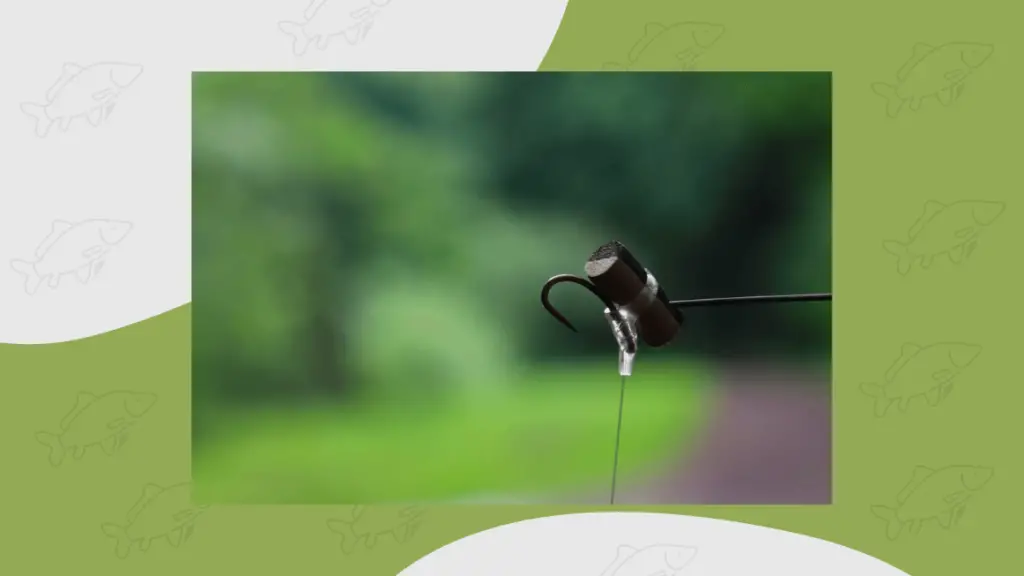
The zig rig is definitely the most stand out rig from this full guide.
Designed to be fished in mid-water, the zig rig is essentially a longer version of the simple hair rig that keeps your rig suspended off the lakebed.
It’s a deadly tactic throughout the summer and winter, when carp can be found cruising in the upper layers where the water is often warmer.
Despite carp being predominantly bottom feeders, they do spend a lot of their time in the upper layers. This leads them prone to capture at these depths, as they pick off any food items that are floating through the water.
The rig itself is incredibly simple. A basic hair rig is created using a dedicated zig rig hook and you alter the length of the hooklink depending on the depth that you want the hookbait to be sitting at.
A buoyant hookbait is then attached and it will pop up directly from the lead set up that you choose, whether that be a lead clip or inline lead for example.
Additionally, it’s advised to go for a dedicated zig rig hooklink material which are typically buoyant and invisible. Perfect to snare any carp as they are cruising mid-water. What you don’t want to do is to use a stiff braided material which is likely to be visible from afar!
Zig rigs are suitable for use all-year round. There are times when they tend to work better than others though, such as:
Obviously one of the main questions when it comes to zig rigs is what depth should they be? This all depends on the depths of water you have in front of you, but I have found them to be more successful on venues deeper than 5 foot.
The really achieve the best results from zig rigs, it pays to use them on all three rods and experiment at different depths. For example, if the depths in front of you are 18ft, you could have your three rods staggered at 5ft, 10ft, and 15ft.
This would give you some good water coverage and help you identify what depth the carp are sitting at. You can then change all three rods to the same depth if you catch a carp.
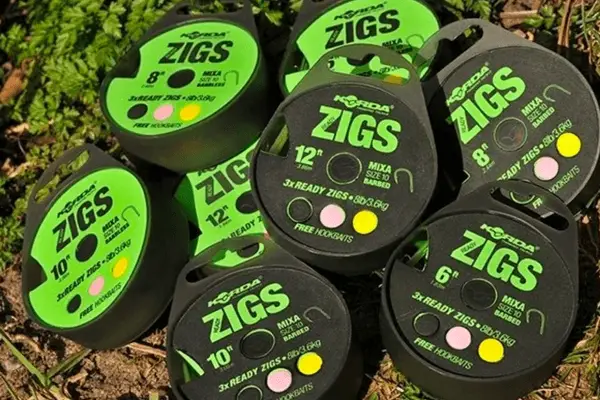
Typical Use
When fishing with solid PVA bags. Ideal for use over light weight and debris, or areas of the lake which haven’t been investigated.
Difficulty
Time to Make
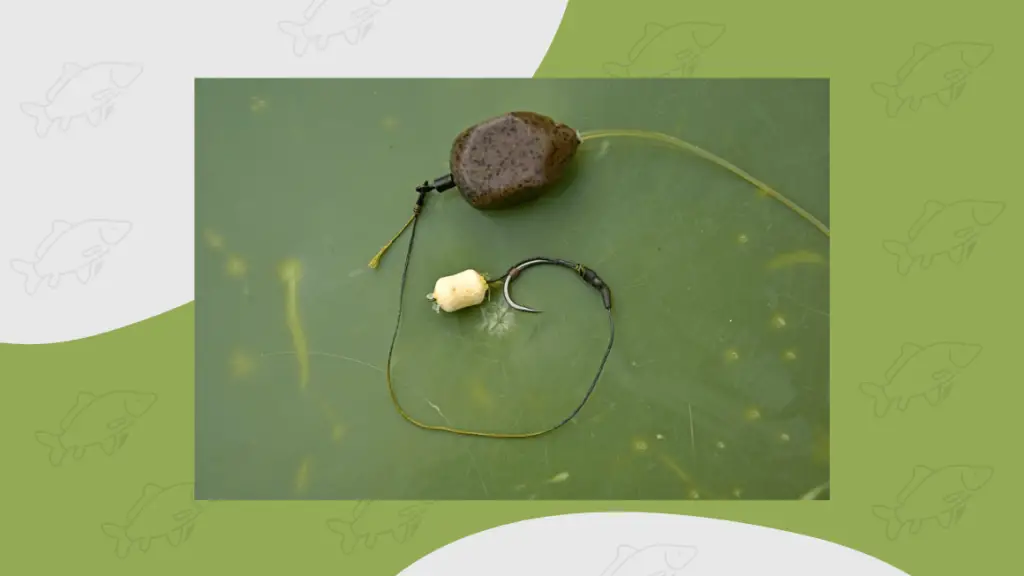
As the name suggests, this carp rig is typically used when fishing with solid PVA bags.
It’s essentially a supple, shorter version of the simple hair rig.
Due to the size and mechanics of solid PVA bags, your rig needs to be short in length and easy to manipulate into the bag along with your lead arrangement and bait.
For this reason, the main component of the solid PVA bag rig is a supple braided material. Unlike monofilament, braid does not kink and it can be easily moulded to fit inside a PVA bag packed with carp pellets.
The key to a successful solid PVA bag rig is to keep things simple so that they are easy to add inside the PVA bag. That’s why many opt to use just a simple hair rig for this, sometimes with the addition of a small line aligner.
Bulky rigs with lots of components such as the ronnie rig or multi rig are just too fiddly and the mechanics of the rig can be hindered by packing them into a solid PVA bag.
Solid PVA bags are an excellent method at all times of the year.
Similar to the chod rig, they are very much a ‘cast anywhere’ tactic.
Due to the rig being encapsulated in the bag, they typically land really well on the lakebed and will be presented effectively in almost all situations.
For me personally, I love to use them when casting to showing fish. A small solid PVA bag is always going to be presented well and a handful of pellets is just enough to tempt any carp to feed.
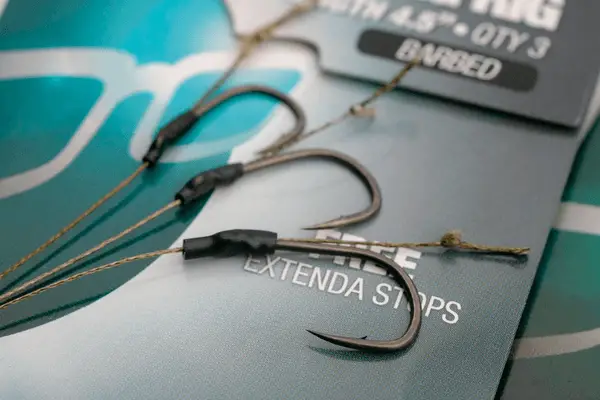
A major turning point in the history of carp rigs. Lenny Middleton and Kevin Maddocks began experimenting with separating the bait from the hook and the hair rig was born!
Essex angler, Mike Kavanagh began experimenting with stiff hooklink materials on his carp rigs. Hook holds improved and people began using it more over traditional suppler hooklink materials.
Jim Gibbinson invented the much loved line aligner. that is still used to this day. By adding a piece of shrink tubing to the eye of the hook, he was able to improve hook holds by making the hook flip faster and catch hold of the carps mouth.
Dave Chilton invented Snake Bite, the first coated braid material. This was an instant hook, allowing carp rigs to be both stiff and supple, without the use of two separate materials.
Northern angler Frank Warwick began experimenting with super-short rigs on lengths of leadcore. He was spotted by Terry Hearn who took the concept one step further to develop the chod rig that we all use today.
Kevin Nash was credited with launching the first ever lead clip system. This was a game changer in carp rigs, enabling them to safely drop the lead, improving fish safety in the process.
Big carp angler Dave Lane started to work on a rig that was to revolutionise our end game. With the availability of the size 5 curved shank hooks, he invented the 360 rig. This rig allows the hook to turn and take hold from any angle due to the use of a micro swivel.
The 360 rig has certainly been at the forefront of developing the ever-popular ronnie rig that’s used so much today
A moment as big as the launch of the lead clip! Korda launched the Helisafe to allow leads to be dropped from a helicopter rig.
Below are some of the most frequently asked questions we get about carp fishing rigs.
Put simply, there is no best carp rig. It’s all about choosing a rig which best suits the angling situation that you’re faced with. Likewise, you want to make sure that you have total confidence in whatever you cast out into the lake.
Try to find confidence in just a couple of rigs so that you can focus more of your attention on where to place them in front of feeding carp.
The length of carp rigs is purely down to personal preference. The typical length of a carp rig seems to be anywhere from 8 inches to 15 inches. There are times when you may want to adapt the length of your rig.
For example, when fishing with solid PVA Bags, you will require a small hooklink that can be coiled inside the bag.
Alternatively, you may opt for a longer carp rig when fishing in weed or silt. In this instance, the lead can plunge deep into the lakebed, so a longer hooklink helps to keep your hookbait sitting above any debris/chod on the lake bed.
There is no one size fits all when it comes to choosing hook sizes for your rigs.
The most important thing is to ensure that your hook is in proportion to the bait that you are using.
For example, an 18mm boilie matches a size 4 carp hook perfectly. Alternatively, a smaller bait such as a grain of fake corn may be best suited with a size 8 or 6.
I’ve always been a fan of using just a handful of rigs. This enables me to have plenty ready to be used in whatever angling situation I am faced with. Being prepared with carp rigs can definitely help you fish more effectively and put more carp on the bank. Here are the carp rigs that I use and always have readily available:
The key to attaching mainline to carp rigs is to ensure that you can chop and change rigs quickly. For this reason, one of the best ways to attach your carp rigs is to use a loop-to-loop method.
In the video below, you can see how to create a loop-to-loop connection. This can be used to attach your mainline to a leader.

Rob W
I’m Rob, Carp Squad’s main contributor. I’ve been carp fishing on and off for 15 years, but the bug is well and truly back at the moment. Hopefully the articles I write on here help you put more carp on the bank.
As an affiliate, we may earn a commission from qualifying purchases. We get commissions for purchases made through links on this website from Amazon and other third parties. Thank you for your support!
![Stocks Lake Norton Disney [Tips & Tactics]](https://carpsquad.com/wp-content/uploads/2023/11/stocks-lake-norton-disney-2-1-150x150.png)



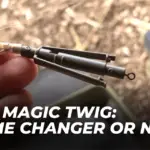
![Stocks Lake Norton Disney [Tips & Tactics]](https://carpsquad.com/wp-content/uploads/2023/11/stocks-lake-norton-disney-2-1.png)

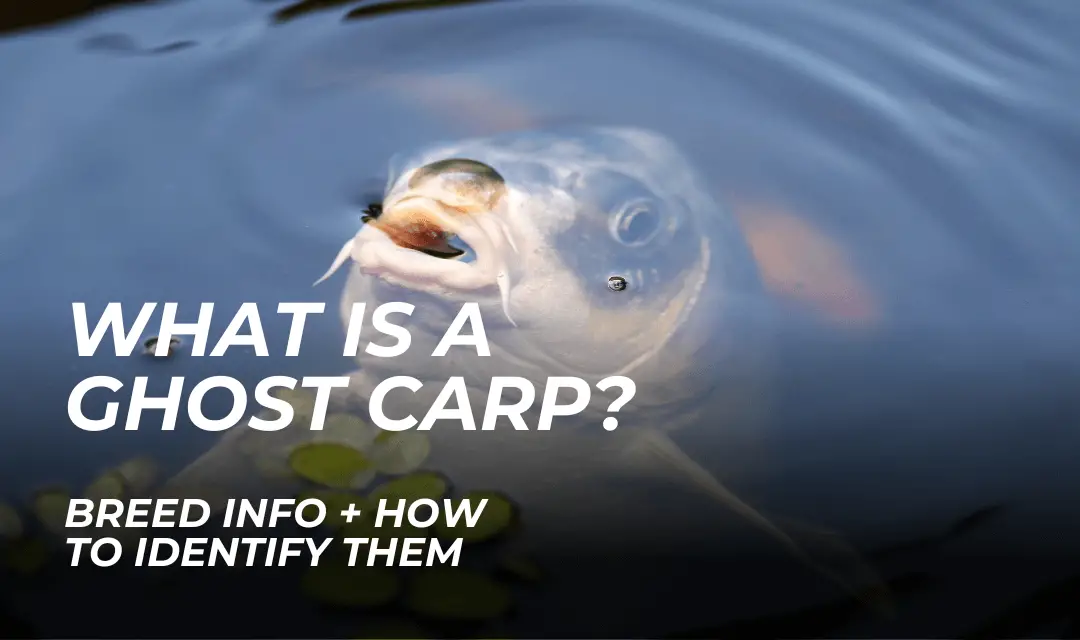

Carp Squad is one of the leading online carp magazines. With over 32,000 views per month, we’re quickly becoming the go-to source for true and trusted product reviews, news and carp tackle buying guides.
As an affiliate, we earn from qualifying purchases. We get commissions for purchases made through links on this site. It helps us to keep creating great content for carp anglers.